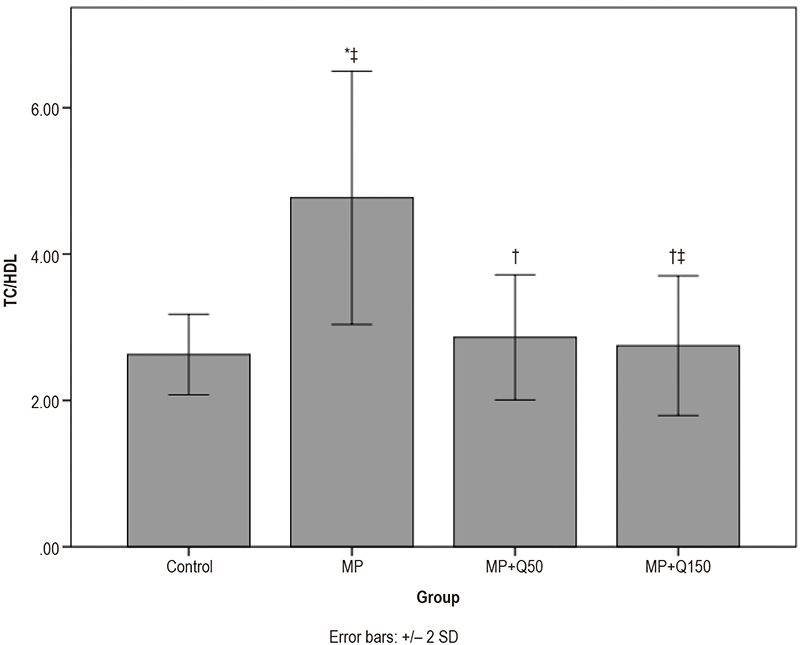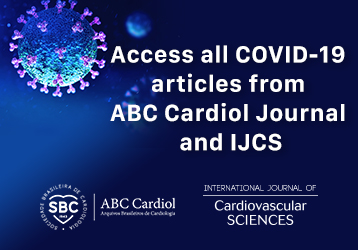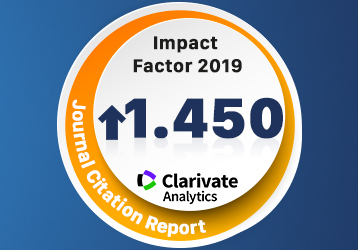Volume 115, Nº 1, July 2020
DOI: https://doi.org/10.36660/abc.20180397
ORIGINAL ARTICLE
Quercetin Ameliorates Lipid and Apolipoprotein Profile in High-Dose Glucocorticoid Treated Rats
Hoda Derakhshanian
Mahmoud Djalali
Abolghassem Djazayery
Mohammad Hassan Javanbakht
Mahnaz Zarei
Azita Hekmatdoost
Ghazaleh Eslamian
Seyyedeh Somayyeh Mirhashemi
Ahmad Reza Dehpour

Figure 1 – Mean of the total cholesterol to HDL ratio in the different groups. Data presented as Mean±SD. N=8 for all groups. MP: methylprednisolone; Q50: quercetin 50 mg/kg; Q150: quercetin 150 mg/kg; TC: total cholesterol; HDL: high-density lipoprotein; * p<0.05 compared with control group, † p<0.05 compared with MP group, ‡ p<0.05 compared with MP+Q50.
Abstract
Background: Glucocorticoids (GCs) are widely prescribed for the treatment of numerous clinical disorders due to their anti-inflammatory and immune-modulatory properties and one of the most common untoward effects of these drugs is dyslipidemia.
Objective: To evaluate the effect of quercetin, a plant-derived flavonoid, on the lipid profile of high-dose glucocorticoid treated rats.
Methods: A total of 32 Sprague-Dawley rats, were randomly distributed among four groups (8 rats per group) and treated for 6 weeks with one of the following: (i) normal saline; (ii) 40 mg/kg methylprednisolone sodium succinate (MP); (iii) MP + 50 mg/kg quercetin; (iv) MP + 150 mg/kg quercetin. MP was injected subcutaneously, and quercetin was administered by oral gavage 3 days a week. At the end of the study, the animals’ lipid profile was measured by enzymatic kits. Data were analyzed and statistical significance was set at p<0.05.
Results: The mean serum total cholesterol (TC), triglyceride (TG) and LDL levels were drastically increased in GC-treated animals compared with the control group. Both doses of quercetin (50 and 150 mg/kg) ameliorated TC (43% and 45%), LDL (56% and 56%) and TG (46% and 55% respectively). Apo B/A1 ratio decreased more than 20% following quercetin intake and the decline in TC/HDL, TG/HL, LDL/HDL ratios were significant.
Conclusions: These data suggest that quercetin intake with both doses of 50 and 150 mg/kg could be considered as a protective agent for glucocorticoid-induced dyslipidemia. (Arq Bras Cardiol. 2020; 115(1):102-108)
Keywords: Rats, Sprague-Dawley; Anti-Inflammatory Agents; Quercetin; Glucocorticoids; Dyslipidemias; Triglycerides; Cholesterol.















